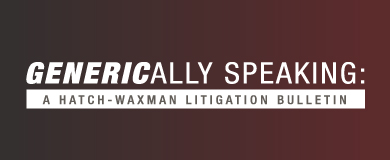- Acumen Powered by Robins Kaplan LLP®
- Affirmative Recovery
- American Indian Law and Policy
- Antitrust and Trade Regulation
- Appellate Advocacy and Guidance
- Business Litigation
- Civil Rights and Police Misconduct
- Class Action Litigation
- Commercial/Project Finance and Real Estate
- Corporate Governance and Special Situations
- Corporate Restructuring and Bankruptcy
- Domestic and International Arbitration
- Entertainment and Media Litigation
- Health Care Litigation
- Insurance and Catastrophic Loss
- Intellectual Property and Technology Litigation
- Mass Tort Attorneys
- Medical Malpractice Attorneys
- Personal Injury Attorneys
- Telecommunications Litigation and Arbitration
- Wealth Planning, Administration, and Fiduciary Disputes
Acumen Powered by Robins Kaplan LLP®
Ediscovery, Applied Science and Economics, and Litigation Support Solutions
-
April 23, 2024David Martinez Recognized Among Top 100 Lawyers in Los Angeles by LA Business Journal
-
April 15, 2024Robins Kaplan Named to 2024 BTI Client Service A-Team
-
April 9, 2024Robins Kaplan LLP Files Complaint Against Social Media Giants Meta, Snap, TikTok on Behalf of Spirit Lake Nation, Menominee Indian Tribe of Wisconsin
-
April 24, 2024IP Leadership Executive Summit
-
April 24, 2024IP Odyssey: Navigating the Latest Developments in Intellectual Property Law
-
April 30, 2024Navigating Generational Dynamics
-
March 2024e-Commerce: Pitfalls and Protections
-
March 22, 2024‘In re Cellect’:
-
March 14, 2024How Many Cases Have You Tried to a Verdict?
-
September 16, 2022Uber Company Systems Compromised by Widespread Cyber Hack
-
September 15, 2022US Averts Rail Workers Strike With Last-Minute Tentative Deal
-
September 14, 2022Hotter-Than-Expected August Inflation Prompts Massive Wall Street Selloff
Find additional firm contact information for press inquiries.
Find resources to help navigate legal and business complexities.
Celgene Corp. v. Hetero Labs Ltd.
The court denied defendants’ motion to dismiss, pending limited venue-related discovery.
March 02, 2018

Case Name: Celgene Corp. v. Hetero Labs Ltd., 17-3387 (ES) (MAH), 2018 U.S. Dist. LEXIS 34025 (D.N.J. Mar. 2, 2018) (Salas, J.)
Drug Product and Patents-in-Suit: Pomalyst® (pomalidomide capsules); U.S. Patents Nos. 8,198,262 (“the ’262 patent”), 8,673,939 (“the ’939 patent”), 8,735,428 (“the ’428 patent”), and 8,828,427 (“the ’427 patent”)
Nature of the Case and Issue(s) Presented: Defendants Mylan Pharmaceuticals, Inc., Mylan, Inc., and Mylan N.V. (together “Mylan”) moved to dismiss Plaintiff Celgene’s complaint for improper venue, lack of subject matter, and failure to state a claim. The court denied Mylan’s motion but opened limited discovery for venue related purposes.
Why Celgene Prevailed: The court first determined that, despite a split in how courts attribute the burden of proof in motions to dismiss for improper venue, Mylan, the party opposing venue, bore the burden of proof. Further, based on Mylan’s declarations, the court found sufficient evidence to demonstrate that Mylan did not reside in the District of New Jersey. But the court also found that Mylan had not met its burden of proving that it did not commit acts of infringement in the district. Mylan argued that it, by definition, had not committed an act of infringement, as Hatch-Waxman litigation contemplates acts of future, not past, infringement. The court disagreed, concluding that acts of infringement, in the Hatch-Waxman context, includes acts that the ANDA applicant non-speculatively intends to take if its ANDA is approved. Thus, Mylan had allegedly committed acts of infringement in the district. Finally, the court concluded that it did not have enough information to determine whether Mylan had a regular and established place of business in New Jersey. Accordingly, the court ruled that Celgene should be allowed to take limited venue-related discovery for the purpose of making this showing.
Because the court permitted venue-related discovery, it determined that the arguments that Celgene failed to state a claim upon which relief could be granted was moot for the time being. For this reason, the court denied the failure-to-state-a-claim portion of Mylan’s motion, but did so without prejudice so that Mylan could raise the issue again after discovery. Similarly, the court also denied Mylan’s motion to dismiss for lack of subject-matter jurisdiction, but did so without prejudice so that Mylan could raise the issue at a later date.
Related Professionals
Christopher A. Pinahs
Partner
Related Publications
Related News
If you are interested in having us represent you, you should call us so we can determine whether the matter is one for which we are willing or able to accept professional responsibility. We will not make this determination by e-mail communication. The telephone numbers and addresses for our offices are listed on this page. We reserve the right to decline any representation. We may be required to decline representation if it would create a conflict of interest with our other clients.
By accepting these terms, you are confirming that you have read and understood this important notice.
